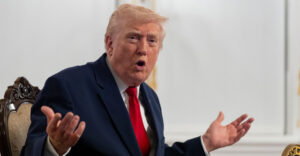Elon Musk’s decision Elon Musk’s decision to host German far-right leader Alice Weidel on a live broadcast on his platform, X (formerly Twitter), has sparked a fierce backlash from European Union leaders and lawmakers.
As Politico reports, Brussels is being urged to use its legal power to deal with Musk’s apparent involvement in the German election, scheduled for February 23.
According to the European Commission, Musk’s action may violate the Digital Services Regulation (DSA), which regulates the operation of social networks. If the live broadcast is deemed to give AfD unfair prominence over its competitors, penalties could include fines of up to 6% of X’s global turnover or even a temporary ban from the platform.
Weidel’s post previewing the debate:
Reactions from Europe
The French president, Emmanuel Macron, accused Musk of “going too far” in his support for the AfD, a party accused of attempts to downplay Nazi crimes. The party is registering second-place ratings in opinion polls, which lends particular significance to the upcoming elections in Germany.
German MEP Alexandra Guise stressed that Musk’s action goes beyond freedom of speech, as the algorithms of his platform allegedly disproportionately amplify far-right propaganda while suppressing progressive content.
Meanwhile, the European Commission, which has already launched an investigation into X’s compliance with the DSA, has scheduled a meeting with German regulators and representatives of the platform on 24 January.
The involvement of Musk, who will soon become a minister in the Trump administration as head of the Department of Efficiency, complicates the EU’s position. Some European leaders are concerned that any action against Musk could spark tension with the new U.S. administration.
Felix Carte, a senior analyst at the Mercator Foundation, said European leaders are being asked to decide whether they are willing to clash with the Trump administration to protect transparency and democracy in Europe.
Legal and regulatory issues
The Commission is considering whether Musk’s actions violate the platform’s obligation to mitigate risks to the democratic process as defined in the DSA. Allegations that the platform is artificially boosting the popularity of AfD-related content may form the basis for legal intervention.
Former digital policy commissioner Thierry Breton reminded Musk that support for specific political parties or individuals may violate European social media laws. Although Breton has left the European Commission, he remains strongly critical of Musk.
Next steps
The European Commission faces the difficult task of enforcing European law while managing the political fallout. The outcome of the case will have important implications for both election transparency and EU-US relations.
Ask me anything
Explore related questions





